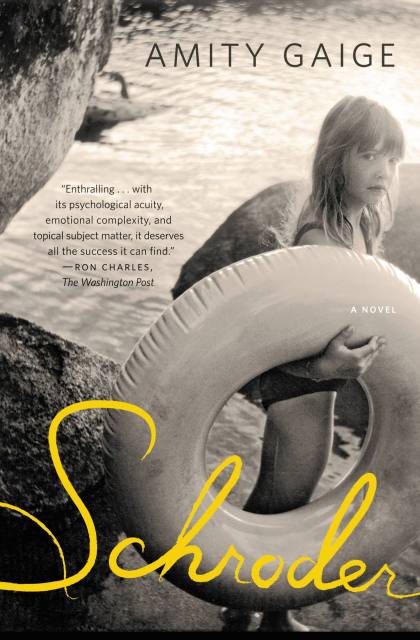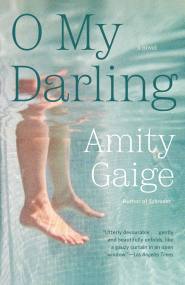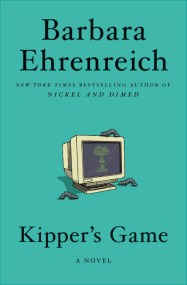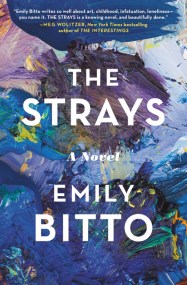By clicking “Accept,” you agree to the use of cookies and similar technologies on your device as set forth in our Cookie Policy and our Privacy Policy. Please note that certain cookies are essential for this website to function properly and do not require user consent to be deployed.
Schroder
A Novel
Contributors
By Amity Gaige
Formats and Prices
- On Sale
- Oct 8, 2013
- Page Count
- 320 pages
- Publisher
- Twelve
- ISBN-13
- 9781455512126
Price
$17.99Price
$23.99 CADFormat
Format:
- Trade Paperback $17.99 $23.99 CAD
- Hardcover $36.00 $46.00 CAD
- Audiobook Download (Unabridged)
This item is a preorder. Your payment method will be charged immediately, and the product is expected to ship on or around October 8, 2013. This date is subject to change due to shipping delays beyond our control.
Buy from Other Retailers:
Attending a New England summer camp, young Eric Schroder-a first-generation East German immigrant-adopts the last name Kennedy to more easily fit in, a fateful white lie that will set him on an improbable and ultimately tragic course.
Schroder relates the story of Eric’s urgent escape years later to Lake Champlain, Vermont, with his six-year-old daughter, Meadow, in an attempt to outrun the authorities amid a heated custody battle with his wife, who will soon discover that her husband is not who he says he is. From a correctional facility, Eric surveys the course of his life to understand-and maybe even explain-his behavior: the painful separation from his mother in childhood; a harrowing escape to America with his taciturn father; a romance that withered under a shadow of lies; and his proudest moments and greatest regrets as a flawed but loving father.
Alternately lovesick and ecstatic, Amity Gaige’s deftly imagined novel offers a profound meditation on history and fatherhood, and the many identities we take on in our lives–those we are born with and those we construct for ourselves.
-
"Complicated and nuanced . . . the novel is absorbing, with a propulsive plot and a narrator who is charming, ambivalent, and searching-a man driven by love who understands that love cannot save him."The New Yorker
-
"The measure of Gaige's great gifts as a storyteller is that she persuades you to believe in a situation that shouldn't be believable, and to love a narrator who shouldn't be lovable. Seldom has such a daring concept for a novel been grounded in such an appealing character."Jonathan Franzen, author of Freedom and The Corrections
-
"In Schroder, Amity Gaige explores the rich, murky realm where parental devotion edges into mania, and logic crabwalks into crime. This offbeat, exquisitely written novel showcases a fresh, forceful young voice in American letters."Jennifer Egan, author of A Visit from the Goon Squad
-
"Amity Gaige has written a flawless book. It does not contain a single false note. Playful and inventive, Schroder movingly depicts the ways we confound our own hearts--how even with the best intentions, we fail to love those closest to us as well as we wish we could. Eric Schroder should take his place among the most charismatic and memorable characters in contemporary fiction, and Amity Gaige her place among the most talented and impressive writers working today."David Bezmozgis, prize-winning author of Natasha and Other Stories and The Free World
-
"You will not want to put this book down. You will want to read it in one big gulp. This is a bullet of a novel, aimed at our pieties about parenthood and familial love. You won't soon forget Schroder or his daughter or the sentences that bring them to life. To those who know Gaige's first two novels, it's no surprise she's produced another stunner. To those who don't, you're in for a treat."Adam Haslett, author of Union Atlantic, and the New York Times best-selling short story collection You Are Not a Stranger Here
-
"Gaige creates a fascinating and complex character in Erik, as he moves from the eccentric and slightly irresponsible father to a desperate man at the end of his rope . . . [an] expert exploration of the immigrant experience, alienation, and the unbreakable bond between parent and child."Booklist
-
"Quiet and deeply introspective . . . Tender moments of observation, regret and joy - all conveyed in unself-consciously lyrical prose - result in a radiant meditation on identity, memory and familial love and loss."Publishers Weekly
-
Praise for Amity GagieNew York Times Book Review on The Folded World
"In this tightly-written and emotionally satisfying novel, a young couple's marriage is thrown into jeopardy by the husband's workaholic tendencies... [Gaige] is extraordinarily adept at revealing her characters' personalities in just a few words... Stirring." -
"The bitterness and disillusion of marriage have been thoroughly plumbed in contemporary fiction; Gaige is one of the rare novelists who is more interested in its potential for happiness and grace. A-."Entertainment Weekly on The Folded World
-
"Love, marriage, and the whole damn thing-all spanned in a witty, tender first novel. With a flavor of Lorrie Moore, graceful, bright, modern writing."Kirkus on O My Darling
-
"Utterly devourable...gently, and beautifully unfolds, like a gauzy curtain in an open window."Los Angeles Times on O My Darling
-
"Sparkles and delights...crystalline insights into the nature of love and flashes of narrative brilliance."Publisher's Weekly on O My Darling
-
"The Folded World will appeal to readers who like to dive into the muck of internal and interpersonal conflicts, and break the surface with breath born of insight and empathy. Amity Gaige's second novel lives up to the reputation she earned with her first one, as an original, compelling voice."Chicago Tribune (Favorite Books of 2007)
Newsletter Signup
By clicking ‘Sign Up,’ I acknowledge that I have read and agree to Hachette Book Group’s Privacy Policy and Terms of Use






